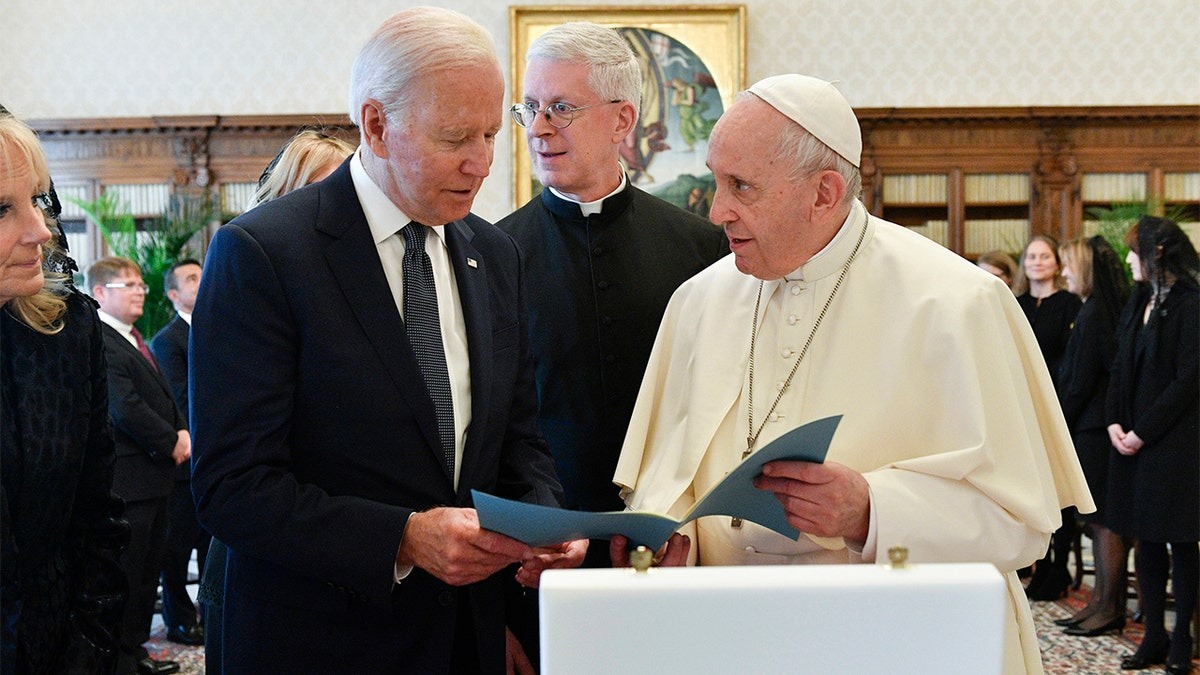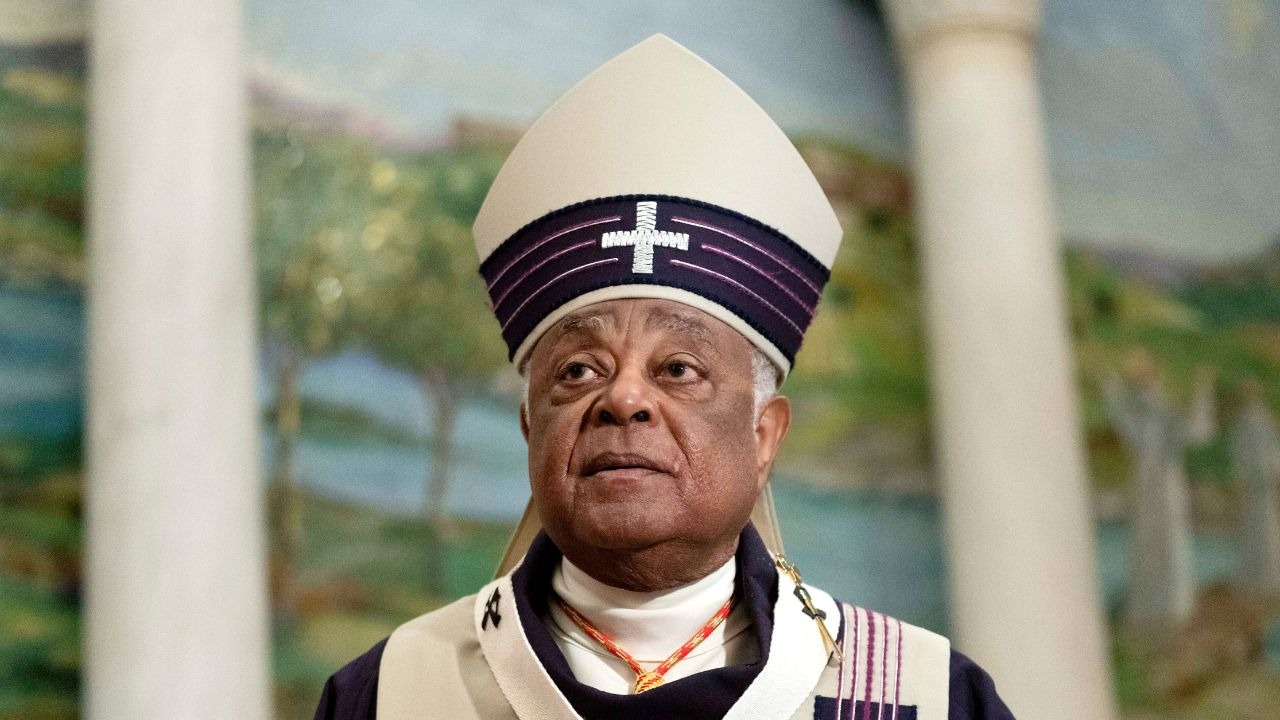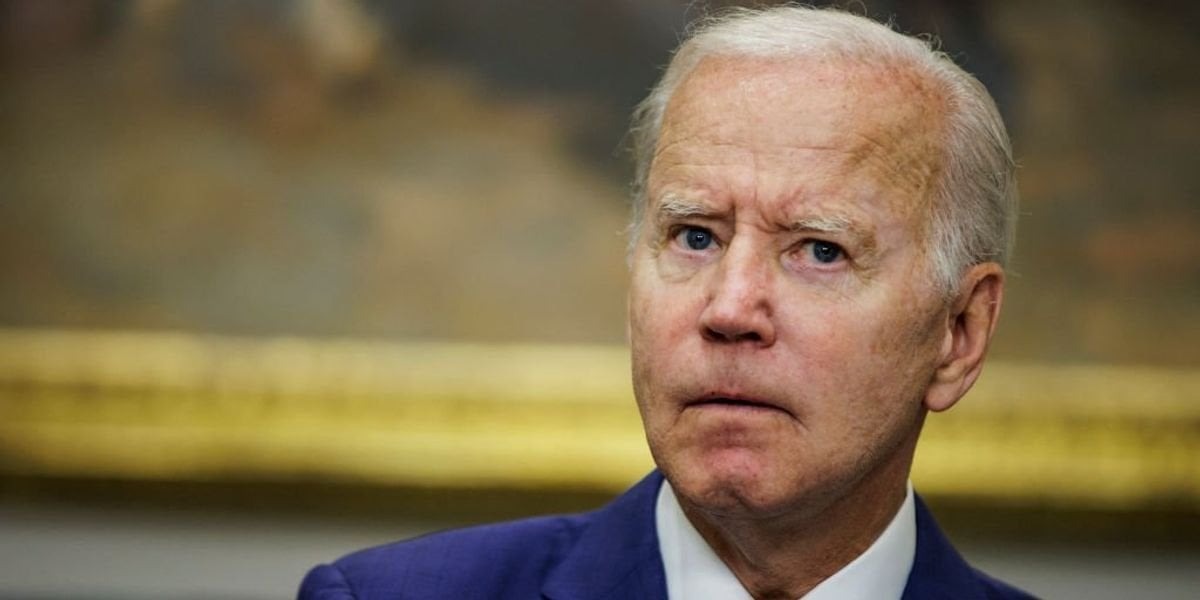On Easter Sunday, a day of religious importance, Cardinal Wilton Gregory of the Archdiocese of Washington strongly criticized President Joe Biden, labeling him a “cafeteria Catholic.”
This term is often used to describe someone who selectively chooses which elements of their faith to follow based on their personal preferences or political convenience rather than adhering to the religion’s comprehensive doctrines and moral teachings.
During a conversation on a television program where Cardinal Gregory and Episcopalian Bishop Mariann Budde were guests, the interplay between politics and religion emerged.

DC Archbishop with Biden (Credits: Fox News)
Cardinal Gregory pointed out that while religion once served as the moral compass for politicians, there seems to be a reversal, with political agendas now attempting to influence religious moral guidance.
Cardinal Gregory argued that faith should reclaim its role as the principal moral guide in society rather than being overshadowed by political interests. This shift, he said, is essential for maintaining the integrity of religious teachings in the face of political pressures.
The discussion also touched upon President Biden’s religious practices and how they resonate with American Catholics. Cardinal Gregory acknowledged Biden’s sincerity in his faith.
Still, he criticized his selective adherence to Catholic teachings, particularly on issues like abortion, gender ideology, and homosexual unions, which starkly contrast with the Catholic Church’s positions.
The Catholic Church’s teachings on life and human dignity are clear, emphasizing the sanctity of life from conception and unequivocally opposing abortion.
Cardinal Raymond Burke and Archbishop Charles Chaput have been vocal about their stance that leaders who support abortion, like President Biden, should not participate in Communion, reflecting the church’s commitment to its doctrines on the sanctity of life.
President Biden’s advocacy for LGBT rights has placed him at odds with the Catholic Church’s teachings on marriage and gender. Despite societal shifts towards acceptance of LGBT rights, the Church maintains its traditional views on these matters.
Pope Francis himself has remarked on the dangers of gender ideology, highlighting the importance of acknowledging the inherent differences between men and women.

DC’s Cardinal Gregory (Credits: Rebel News)
The U.S. Conference of Catholic Bishops has also expressed concern over technologies and interventions that contradict the natural order of human beings as a unity of body and soul. The Vatican has reiterated the need to respect the sexual difference fundamental to human nature, warning against the negation of this duality.
Despite internal and external pressures, the Catholic Church remains steadfast in its teachings. Pope Francis has made it clear that while the Church reaches out to individuals with compassion, it does not compromise on its doctrines concerning human sexuality and the definition of marriage.
As debates continue, the tension between personal beliefs, political actions, and religious adherence remains a complex issue, especially for public figures like President Biden, whose policies and personal faith are scrutinized within the context of their religious identity.























